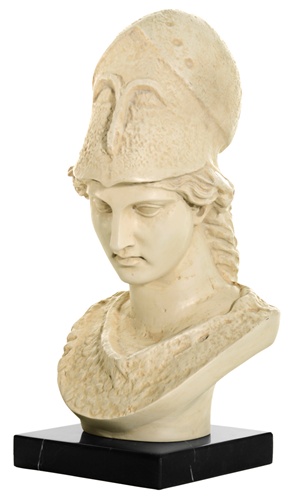|
|
Online Texts for Craig White's Literature Courses
|
|
|
Edgar Allan Poe The Raven 1845 see also Poe, The Philosophy of Composition |
|
Poe is the most Romantic of American authors. He affected a Romantic, Byronic persona, and his poetry and prose incorporate nearly every element of Romanticism.
Discussion Questions:
1. What are some Romantic styles or themes in the poem below? Consider Romantic rhetoric. (For this poem, also contrast Romantic spirit with that of the Enlightenment.)
2. What characteristics of Poe's personal style? How can you tell this is a poem by Edgar Allan Poe?
3. Compare this poem's form as "free verse" or "formal verse" with poems by Dickinson and Whitman (and other poems by Poe).
![]()
[1.1] Once upon a
midnight dreary, while I pondered, weak and weary,
[1.2] Over many a quaint and curious volume of forgotten lore, [lore = wisdom, instruction]
[1.3] While I nodded, nearly napping, suddenly there came a
tapping, [internal rhyme: napping
/ tapping]
[1.4] As of some one gently
rapping, rapping at my chamber door.
[1.5] "'Tis some visitor," I muttered, "tapping at my chamber
door—
[1.6] Only this, and nothing
more."
[2.1] Ah, distinctly I remember
it was in the bleak December, [internal
rhyme: remember / December]
[2.2] And
each separate dying ember wrought its ghost upon the floor.
[2.3] Eagerly I wished the morrow;—vainly I had sought to borrow [internal
rhyme: morrow / borrow]
[2.4] From my books surcease of sorrow—sorrow for the lost
Lenore—
[2.5] For the rare and radiant
maiden whom the angels name Lenore—
[alliteration:
rare, radiant]
[2.6] Nameless here for evermore.
[3.1]
And the silken sad uncertain rustling of
each purple curtain [alliteration:
silken sad uncertain rustling]
[3.2] Thrilled
me—filled me with fantastic terrors never felt before;
[3.3] So that now, to still the beating of my heart, I stood
repeating,
[3.4] "'Tis some visitor
entreating entrance at my chamber door—
[entreating = begging]
[3.5] Some late visitor entreating entrance at my chamber door;—
[3.6] This it is, and nothing more."
[4.1]
Presently my soul grew stronger;
hesitating then no longer,
[4.2] "Sir,"
said I, "or Madam, truly your forgiveness I implore;
[4.3] But the fact is I was napping, and so gently you came
rapping,
[4.4] And so faintly you came
tapping, tapping at my chamber door,
[4.5] That I scarce was sure I heard you"—here I opened wide the
door;—
[4.6] Darkness there, and nothing
more.
[5.1] Deep into
that darkness peering, long I stood there wondering, fearing,
[5.2] Doubting, dreaming dreams no mortals ever dared to dream
before; [alliteration:
deep, darkness, doubting, dreaming, dared]
[5.3] But the silence was
unbroken, and the stillness gave no token,
[5.4] And the only word there spoken was the whispered word,
"Lenore!"
[5.5] This I whispered, and an
echo murmured back the word, "Lenore!"—
[5.6] Merely this, and nothing more.
[6.1]
Back into the chamber turning, all my
soul within me burning,
[6.2] Soon again
I heard a tapping somewhat louder than before.
[6.3] "Surely," said I, "surely that is something at my window
lattice:
[6.4] Let me see, then, what
thereat is, and this mystery explore— [good
example of trochaic meter]
[6.5] Let my heart be still a moment and this mystery explore;—
[6.6] 'Tis the wind and nothing more."
|
[7.1]
Open here I flung the shutter, when,
with many a flirt and flutter, [alliteration:
flirt, flutter]
8.1] Then this ebony bird beguiling my sad fancy into smiling, [beguiling =
charming; fancy = imagination] |
|
[9.1] Much I marvelled this
ungainly fowl to hear discourse so plainly,
[internal rhyme: ungainly / plainly]
[9.2] Though its answer little meaning—little relevancy bore;
[9.3] For we cannot help agreeing that no living human being
[internal rhyme: agreeing / being]
[9.4] Ever yet was blest with seeing bird above his chamber door—
[9.5] Bird or beast upon the sculptured bust above his chamber
door,
[9.6] With such name as
"Nevermore."
[10.1] But the raven, sitting lonely on the placid bust, spoke only
[10.2] That one word, as if his soul in that one word he did
outpour.
[10.3] Nothing further then he
uttered—not a feather then he fluttered—
[10.4] Till I scarcely more than muttered, "other friends have
flown before-
[10.5] On the morrow he
will leave me, as my hopes have flown before."
[10.6] Then the bird said, "Nevermore."
[11.1]
Startled at the stillness broken by
reply so aptly spoken,
[11.2] "Doubtless," said I, "what it utters is its only stock and store,
[11.3] Caught from some unhappy master whom unmerciful Disaster
["caught from" = taught by]
[11.4] Followed fast and followed faster till his songs one burden
bore—
[burden = meaning]
[11.5] Till the dirges of his Hope
that melancholy burden bore
[Romantic rhetoric of archaic
diction]
[11.6] Of
'Never—nevermore'."
[12.1] But the
Raven still beguiling all my fancy into smiling,
[12.2] Straight I wheeled a cushioned seat in front of bird, and
bust and door;
[12.3] Then upon the
velvet sinking, I betook myself to linking
[12.4] Fancy unto fancy, thinking what this ominous bird of yore—
[fancy = imagination or fantasy; yore = long ago]
[12.5] What this grim, ungainly, ghastly, gaunt and ominous bird
of yore [alliteration
+ Romantic rhetoric of archaic
diction]
[12.6] Meant in croaking
"Nevermore."
[13.1] This I sat engaged in guessing, but no syllable expressing
[13.2] To the fowl whose fiery eyes now burned into my bosom's
core;
[13.3] This and more I sat
divining, with my head at ease reclining
[13.4] On the cushion's velvet lining that the lamplight gloated
o'er,
[13.5] But whose velvet violet
lining with the lamplight gloating o'er,
[13.6] She shall press, ah, nevermore!
[14.1]
Then methought the air grew denser,
perfumed from an unseen censer
[censer = incense-burner]
[14.2] Swung by Seraphim whose footfalls tinkled on the tufted floor.
[Seraphim = angels; tufted = carpeted]
[14.3] "Wretch," I cried, "thy God hath lent thee—by these angels
he hath sent thee
[14.4] Respite—respite
and nepenthe, from thy memories of Lenore!
[respite = reprieve; nepenthe = drug of forgetfulness]
[14.5] Quaff, oh quaff this kind nepenthe and forget this lost
Lenore!"
[14.6] Quoth the Raven,
"Nevermore."
[15.1] "Prophet!" said I, "thing of evil!—prophet still, if bird or devil!—
[15.2] Whether Tempter sent, or whether tempest tossed thee here
ashore,
[Tempter = Satan]
[15.3] Desolate yet all
undaunted, on this desert land enchanted—
[15.4] On this home by horror haunted—tell me truly, I implore—
[15.5] Is there—is there balm in Gilead?—tell me—tell me, I
implore!"
[allusion
to Jeremiah 8.22: "Is there no balm in Gilead?]
[15.6] Quoth the Raven,
"Nevermore."
[16.1] "Prophet!" said I, "thing of evil—prophet still, if bird or devil!
[16.2] By that Heaven that bends above us—by that God we both
adore—
[16.3] Tell this soul with sorrow
laden if, within the distant Aidenn,
[Aidenn = Romantic spelling of Eden]
[16.4] It shall clasp a sainted maiden whom the angels name
Lenore—
[16.5] Clasp a rare and radiant
maiden whom the angels name Lenore."
[16.6] Quoth the Raven, "Nevermore."
[17.1]
"Be that word our sign in parting, bird
or fiend," I shrieked, upstarting—
[17.2] "Get thee back into the tempest and the Night's Plutonian
shore!
[17.3] Leave no black plume as a
token of that lie thy soul hath spoken!
[17.4] Leave my loneliness unbroken!—quit the bust above my door!
[17.5] Take thy beak from out my heart, and take thy form from off
my door!"
[17.6] Quoth the Raven,
"Nevermore."
[18.1] And the
Raven, never flitting, still is sitting, still is sitting
[18.2] On the pallid bust of Pallas just above my chamber door;
[18.3] And his eyes have all the seeming of a demon's that is
dreaming,
[18.4] And the lamplight o'er
him streaming throws his shadow on the floor;
[18.5] And my soul from out that shadow that lies floating on the
floor
[18.6] Shall be lifted—nevermore!
[END]
Poe's poem The Raven in popular culture
|
Baltimore Ravens Logo
The team name "Ravens" for the Baltimore National
Football League team
|
The great Texas-suburban
cartoon satire King of the
Hill
|





